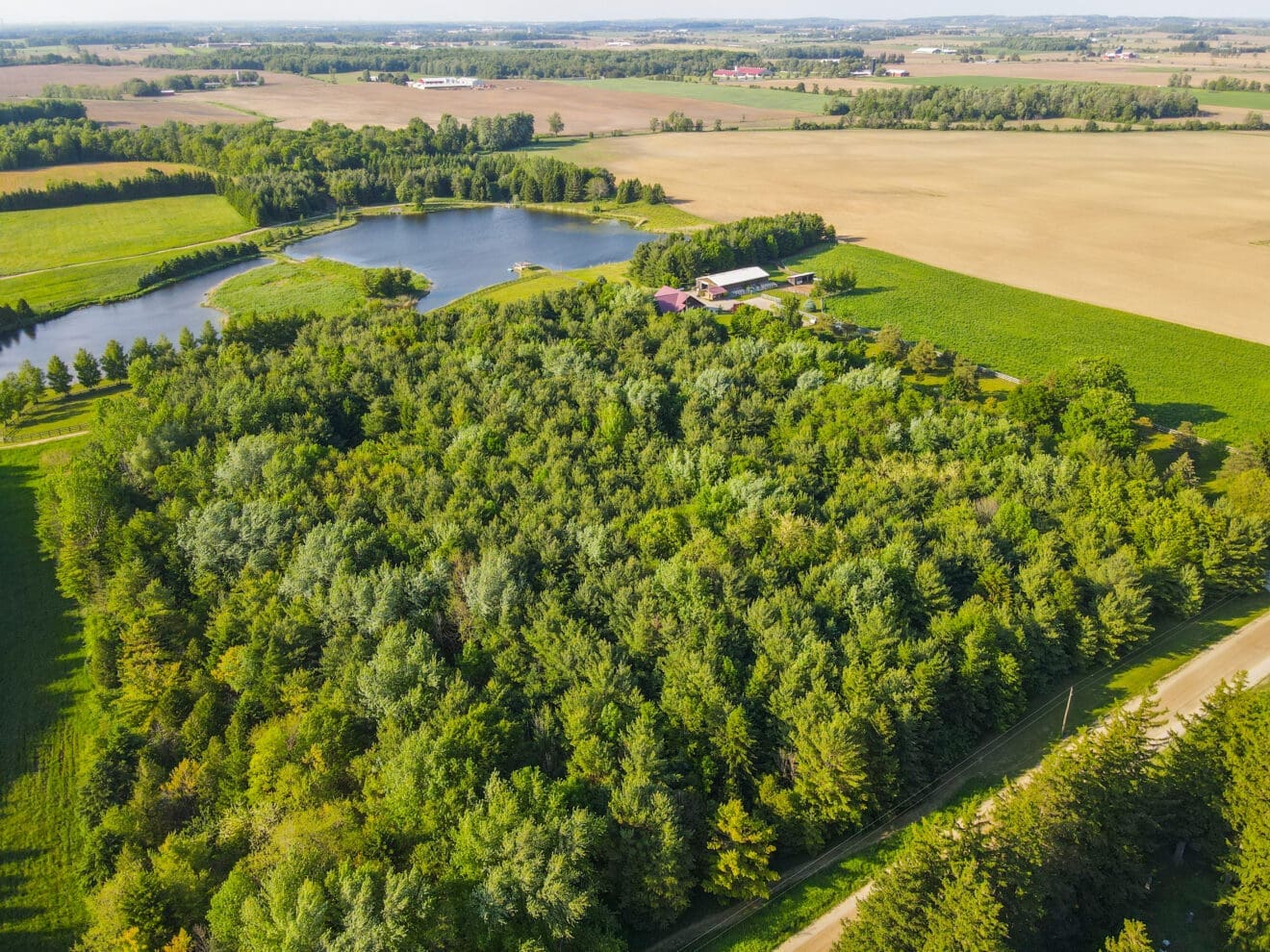March 24, 2025 | Rural
What Does a Home Inspector Look for in a Rural Property?

Buying a rural property is an exciting opportunity to experience a different lifestyle. However, rural properties differ from typical homes, and maintaining them is essential.
A professional home inspection is a critical part of the process to ensure that the property is not only structurally sound but also equipped to meet all of your needs.
Here’s a look at what home inspectors look for on rural properties.
1. Well & Water Systems
One of the most important utilities to check in rural properties is the water system.
If the property has a well, you will want to determine:
- Is the well drilled?
- Is the well dug?
- Is it an artesian well?
A home inspector will assess the well type, its condition, flow rate, and recovery rate, as well as the overall water quality. These tests are essential to determine whether the water is safe for drinking and general use.
Searching for the perfect rural property? Check out our featured listings here.
2. Septic Systems & Waste Management
Unlike suburban or urban communities, rural properties often lack access to municipal sewers and drainage systems. Because of this, ensuring that the septic system is functioning properly is crucial.
A home inspector will evaluate:
- The integrity and capacity of the septic tank
- The function of the leach field (checking for signs of pooling and poor drainage)
- Required setbacks (ensuring the septic system meets local regulations regarding its distance from the well and property lines)
3. Foundation & Structural Integrity
Rural homes—particularly older ones—can have unique foundation concerns, including structural integrity, cracks, leaks, and deterioration.
A home inspector will look for:
- Cracks or shifts in the foundation
- Evidence of moisture intrusion or water damage
- The structural condition of outbuildings such as sheds, barns, and garages to ensure they are safe
Thinking about buying a rural home? Explore these related blogs for more helpful info.
- Tips For Transitioning to Rural Living
- What to Consider Before Buying a Rural Property
- Questions To Ask When Buying An Older Home
4. Chimney & Fireplace Condition
Home inspectors typically do not test fireplaces, as they require a specialist. However, some inspectors will conduct a visual assessment for signs of wear and tear.
It is important to follow up with the homeowners to determine:
- How often the fireplace is used
- Whether it is in working condition
- When it was last inspected or serviced
Older homes often have wood-burning fireplaces, which require regular maintenance to ensure the chimney is clean and functioning properly, especially if the fireplace is a secondary heat source.
5. Electrical & Plumbing Systems
Older rural homes may have outdated electrical systems, such as knob-and-tube wiring, which can pose a fire hazard.
A home inspector will check for:
- Outdated wiring, panels, breakers, and aluminum wiring
- Whether the electrical system can support modern appliances without frequent blown fuses
Plumbing is another key area of inspection. The inspector will look for:
- Leaking or outdated pipes
- Signs of lead piping, corrosion, or mold
- The overall condition of plumbing materials and water pressure
6. Land, Drainage, & Accessibility
Rural properties vary in size and terrain, often introducing challenges that many first-time rural buyers might overlook.
A home inspector will assess:
- Drainage issues: Potential water accumulation areas, storm drains, and proper drainage systems such as eavestroughs and rainwater collection systems.
- Road and driveway condition: Accessibility during winter months—especially important for those with children in school, sports commitments, or long commutes.
7. Attic Ventilation
While not all home inspectors evaluate insulation, some will check attic spaces if they are easily accessible. Proper insulation is essential, especially for cold winters.
Older homes often have large attic spaces rather than crawl spaces, and some may be used as functional living areas. If you plan to finish an attic space, ensure:
- The insulation is sufficient
- The attic is properly ventilated
- Any future renovations comply with building codes
Other Things You Should Look Out For!
Aside from these seven inspection items, there are other important parts of a rural property to check out before you buy it. These include:
- Age and condition of windows (especially if storm windows are used in older homes)
- HVAC and furnace system condition (if applicable)
- Roof condition and last replacement date
- Driveway condition and maintenance needs
- Water quality (is it hard or soft, and does it require a filtration system?)
- Signs of wildlife (rodents, raccoons, bats)
- Radon testing and air quality assessments (to detect any environmental risks)
- Proximity to bodies of water (can affect soil quality and suitability for farming)
- Old buried fuel tanks (look for signs like uneven land, patches of dead grass, or soil discolouration)
What to Know When Buying a Rural Home
Rural properties are unique, and many are truly one of a kind! Ensuring that you conduct a thorough home inspection is essential to securing a safe and functional property. Talk to your real estate agent about scheduling a professional inspection before making your final decision.
Looking to buy a rural property? Capstone Real Estate Professionals are here to help! Reach us by email at info@capstonereps.com or call 519.824.9050.
More About Capstone
Our real estate professionals are industry experts and proud long-time locals. Learn more about how each of our team members helps elevate your real estate experience.





